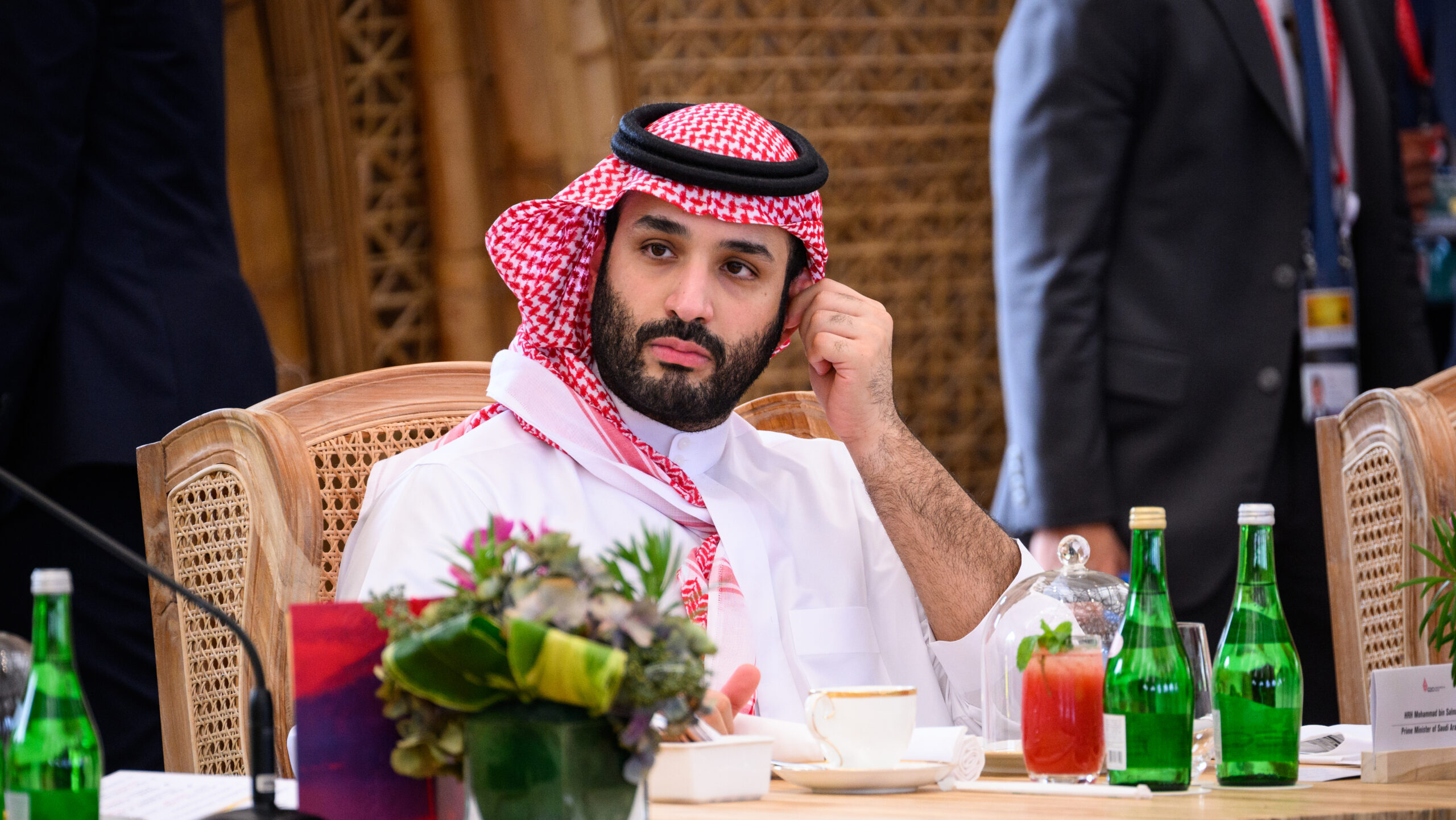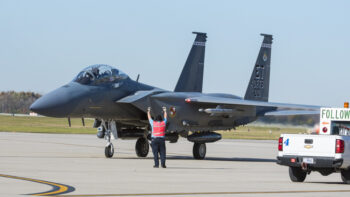
Crown Prince Mohammed bin Salman of Saudi Arabia takes his seat ahead of a working lunch at the G20 Summit on November 15, 2022 in Nusa Dua, Indonesia. (Photo by Leon Neal/Getty Images)
WASHINGTON — As Israel continues its aggressive, widespread retaliation for the hundreds killed in the Oct. 7 assault by Hamas, the effects of the attack have reverberated on the geopolitical stage and prompted questions about whether a recent push for Saudi-Israeli normalization can survive one of the greatest Middle Eastern crises in years.
In the days after the attack, analysts told Breaking Defense that any progress towards a historic agreement between Riyadh and Jerusalem will see at least a significant pause.
“These events will put the normalization deal between Saudi Arabia and Israel on hold, at least for now. Saudi officials will not have the political bandwidth to agree to such a deal while the violence is ongoing, and diplomatic resources in the region will have to shift towards this immediate crisis,” associate policy researcher at RAND Alexandra Stark told Breaking Defense.
Likewise, Director of the Middle East Security program at the Center for a New American Security Jonathan Lord said, “The war doesn’t change the ultimate calculus for Riyadh, Washington, or Jerusalem. All parties recognize the benefits that normalization would bring, but it’s hard to imagine any progress could be made while Israel is singularly focused on defending itself from Hamas’s unprecedented assault.”
Israel already normalized relations with smaller Gulf nations with the Abraham Accords in 2020, and just weeks ago both Saudi leader Mohammed bin Salman and Israeli Prime Minister Benjamin Netanyahu said the two nations were getting closer normalization “every day.”
Before the assault, bin Salman made clear “the Palestinian issue is very important. We need to solve that part.”
Despite bin Salman’s comments, however, Daniel Byman, senior fellow with the Transnational Threats Project at the Center for Strategic and International Studies, said that the Kingdom had “hoped to take advantage of the Arab world’s inattention to Palestinian issues” to progress the deal.
“But this is impossible when [Palestine is] on the front page and many Palestinians are dying in a struggle. It would need to demand major concessions from Israel on this issue, which Israel would not give,” he said.
David Des Roches, an associate professor at the Near East South Asia Center for Security Studies, has been more skeptical of normalization in general, and said Monday that he believed prospects have only gotten worse in the wake of the attack.
“Obviously, the chances of further normalization with Israel is significantly diminished. Indeed, those countries which have normalized are likely to put relations in a hold until this crisis recedes,” Des Roches said.
He said that the whole premise of normalization was that the Palestinian situation was stable. “Recall the UAE [United Arab Emirates] stated at the time of accession that they would withdraw if the West Bank were annexed by Israel. Now Palestinians are at the forefront of the discussion: I think this effectively stops any progress towards Saudi-Israeli normalization.”
Whatever danger to Saudi-Israeli relations, according to Lord and Hussain Abdul-Hussain, research fellow at the Foundation for Defense of Democracies, the Abraham Accords between Israel and the UAE and Bahrain would not be in danger of rupturing.
“[They] will unlikely be shaken by Hamas’s attacks on Israel,” Abdul-Hussain said.
Historic Call Between Saudi Arabia and Iran
Among the strongest signs of Hamas’s attack as a threat to regional stability beyond Israel was news Wednesday that it prompted bin Salman and Iranian President Ebrahim Raisi to speak directly on the phone for the first time.
According to the Saudi press agency, bin Salman received a phone call from Raisi to discuss military escalation in Gaza, and the Saudi crown prince reiterated “the Kingdom’s unwavering stance in standing up for the Palestinian cause and supporting efforts aimed at achieving comprehensive and fair peace that ensures the Palestinian people’s legitimate rights.”
A senior Iranian official said that during the the 45-minute conversation the two “agreed on the need to end war crimes against Palestine. Islamic unity was stressed [and] both believed the regime’s crimes [and] the US green light will cause destructive insecurity for the regime [and] backers.”
The US government has accused Iran of historically supporting Hamas with funding and weapons, but except for vocal support for the Oct. 7 attack, Tehran has denied it was party to the planning or execution of it — an assertion with which the US says it agrees for now, and one that could keep the conflict from spiraling into a wider Middle Eastern war.
France, Germany ink deal on way ahead for ‘completely new’ future European tank
Defense ministers from both countries hailed progress on industrial workshare for a project that they say “will be a real technological breakthrough in ground combat systems.”


























